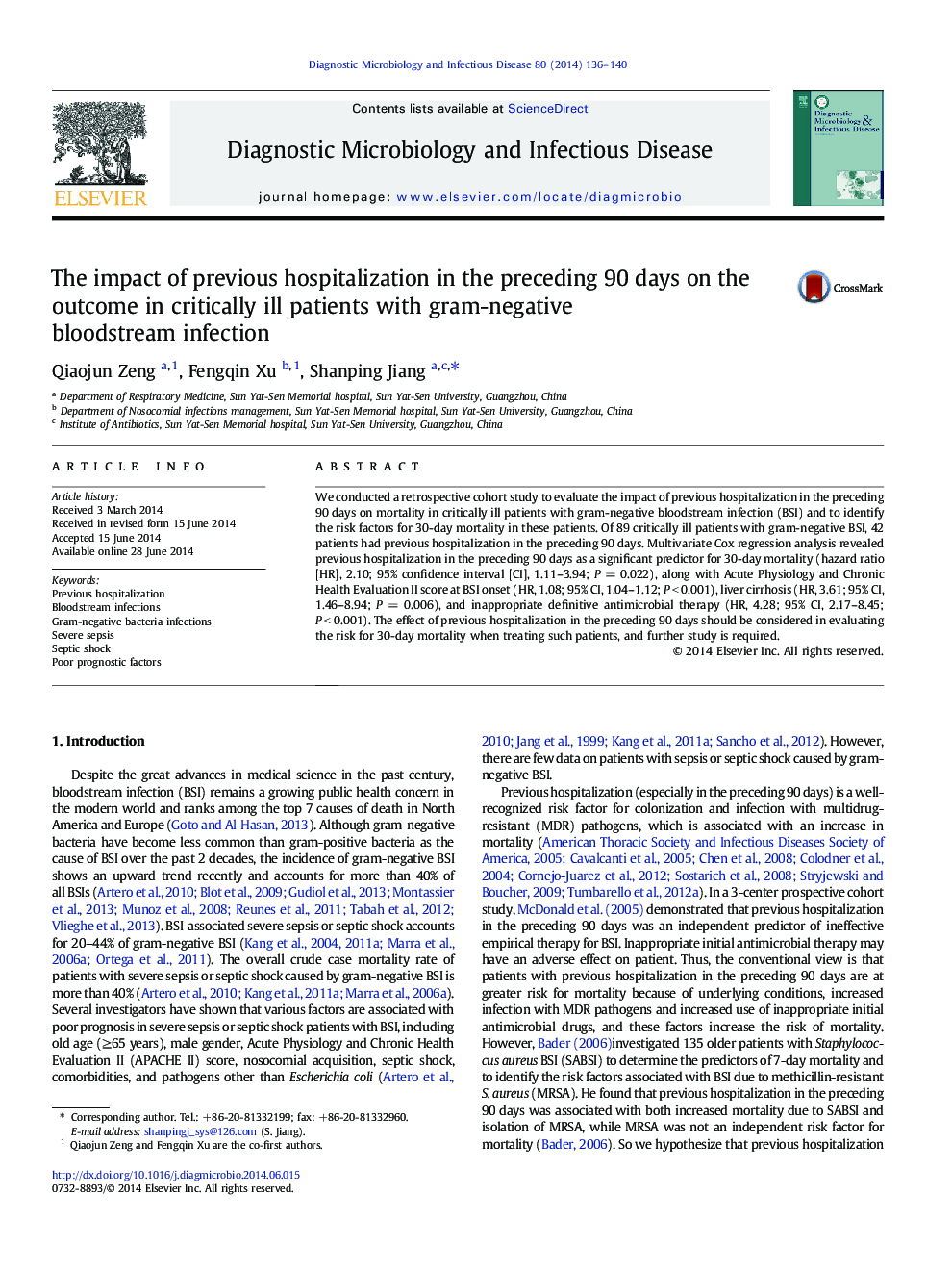| Article ID | Journal | Published Year | Pages | File Type |
|---|---|---|---|---|
| 3346990 | Diagnostic Microbiology and Infectious Disease | 2014 | 5 Pages |
•We included patients with severe sepsis or septic shock caused by gram-negative BSI.•We compared patients with and without prior hospitalization in the past 90 days.•Patients with prior hospitalization in the past 90 days had a higher 30-day mortality.•Prior hospitalization in the past 90 days was a predictor of 30-day mortality for BSI.•The effect of prior hospitalization on patients with BSI needs further study.
We conducted a retrospective cohort study to evaluate the impact of previous hospitalization in the preceding 90 days on mortality in critically ill patients with gram-negative bloodstream infection (BSI) and to identify the risk factors for 30-day mortality in these patients. Of 89 critically ill patients with gram-negative BSI, 42 patients had previous hospitalization in the preceding 90 days. Multivariate Cox regression analysis revealed previous hospitalization in the preceding 90 days as a significant predictor for 30-day mortality (hazard ratio [HR], 2.10; 95% confidence interval [CI], 1.11–3.94; P = 0.022), along with Acute Physiology and Chronic Health Evaluation II score at BSI onset (HR, 1.08; 95% CI, 1.04–1.12; P < 0.001), liver cirrhosis (HR, 3.61; 95% CI, 1.46–8.94; P = 0.006), and inappropriate definitive antimicrobial therapy (HR, 4.28; 95% CI, 2.17–8.45; P < 0.001). The effect of previous hospitalization in the preceding 90 days should be considered in evaluating the risk for 30-day mortality when treating such patients, and further study is required.
